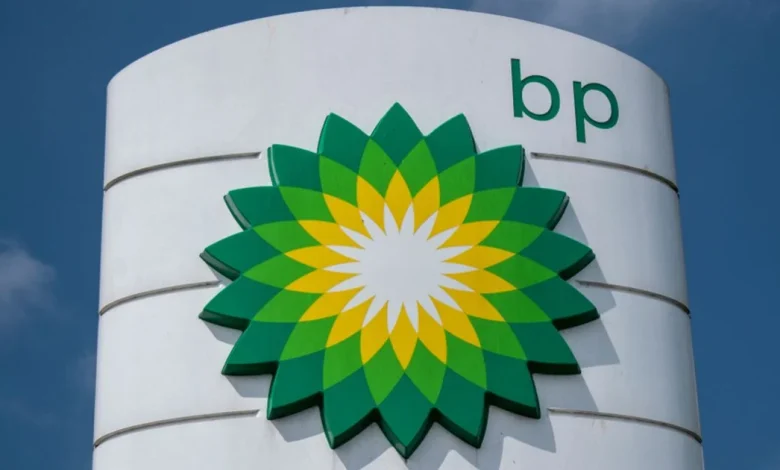FTSE 100 Live: London index tumbles at open as miners fall, BP beats and Primark separation eyed

8.49am: Reeves sets scene for tough Budget choices
Bond markets are watching closely as Chancellor Rachel Reeves is now taking questions are delivering a speech this morning, setting the scene for the 26 November Budget, widely seen as laying the groundwork for potentially painful but necessary income tax increases.
She said the budget would focus on bringing down NHS waiting lists, the cost of living, and the national debt.
Reeves cited weak productivity and high government debt as key challenges, blaming previous governments’ “years of economic mismanagement [that] has limited our country’s potential”.
She reaffirmed her commitment to fiscal rules and prioritising debt interest savings for public services, reassuring words for bond markets and voters.
“The less we spend on debt interest,” she said, “the more we can spend on the priorities of working people, NHS, our schools, our national security, the public service essential to both a decent society and a stronger economy.”
Bond yields fell initially, reflecting confidence in fiscal discipline and possible future rate cuts, but the next hour or two will confirm what they really think.
Market analyst Patrick Munnelly at Tickmill Partners says: “Much of what Reeves might unveil today regarding fiscal consolidation may already be baked into market sentiment.”
8.28am: First views on ABF strategic review
Barclays analyst Warren Ackerman says: “We are fans of pure plays and have advocated for a split but didn’t think it was a realistic possibility, so this is a positive surprise”.
He feels Primark is now of a size that “it make sense”, with the Foods business looking undervalued within the ABF structure.
“There are hurdles ahead such as tax but this is a big first step.”
He gives his share price target a big hike to 2500p from 2150p.
The overall performance from AB Foods was “disappointing”, says market analyst Richard Hunter at Interactive Investor, but this had previously been foreshadowed, while the strategic review was only rumoured and was the “headline news”.
Hunter feels the rationale for such a move “is that management consider that the Food business has long been misunderstood by the market, despite its portfolio, expertise and potential”.
“In addition, Primark is reaching a size where it perhaps requires laser focus to capitalise on its own growth prospects, particularly overseas, where the brand is gaining some real traction.
“The consideration of the split is understandable, with Primark being a jewel in the crown for the group and currently responsible for 49% of group revenues.
“That being said, this has been a challenging time for the retail business and the numbers are mixed.”
8.15am: FTSE tumbles due to miner decline
The FTSE 100 has tumbled out of bed, plunging 74 points or 0.8% to just above 9,627 as miners create a heavy weight.
A fall in copper and iron ore prices are hitting base metals miners, with Antofagasta and Anglo American down 3.6% and 2.5% respectively.
Precious metals miners Fresnillo and Endeavour Mining are both down over 2% as gold and silver prices drop.
Schroders and Vodafone are also down over 2%.
8am: ABF says Primark and food businesses could be separated
Associated British Foods PLC (LSE:ABF) says it is carrying out a structural review that could result in Primark being separated from its food businesses.
Alongside final results from the FTSE 100 group, where profits fell less than feared, chairman Michael McLintock said he is leading the review, which is in consultation with Wittington, the investment vehicle of the founding Weston family.
“Given the scale that Primark has now attained and the need for better understanding of our Food businesses, the board has been undertaking an in-depth review of the future shape of ABF to assess whether a separation of the Primark and Food businesses would be a better structure in the years ahead.”
ABF reported full-year profits that fell 13% to £1.73 billion, beating consensus estimates of £1.68 billion, while adjusted earnings per share were 174.9p, also beating forecasts.
A £250 million share buyback was announced and the total dividend was 63p, down from 90p a year ago.
7.40am: A BP beat
BP PLC (LSE:BP.) has posted third-quarter profits broadly slightly ahead of consensus forecasts, with a new $750 million share buyback announced on top.
Underlying replacement cost profit came in at $2.2 billion, beating analyst estimates of $1.98 billion, while adjusted earnings per share of 14.24 cents were well ahead of the expected 11.97 cents.
CEO Murray Auchincloss hailed successes in the development and exploration of new projects, with all six of the major oil and gas projects planned for the year now online, with four ahead of schedule and a seventh sanctioned in the Gulf of Mexico/America.
Meanwhile, he said divestment proceeds for the year should be higher than $4 billion, underpinned by around $5 billion of completed or announced disposal agreements and “good progress” is being made to cut costs, strengthen our balance sheet and increase cash flow and returns.
7.24am: Market divergence between big tech and the rest
An increasingly familiar theme was seen on Wall Street last night: a divergence between Big Tech and the rest of the market.
While the S&P 500 rose 0.17%, this was largely down to the Magnificent 7 tech giants, which were up 1.18%, while the S&P 500 excluding the Mag-7 fell 0.3% and the equal-weighted S&P 500 also fell 0.3%.
“The main driver was yet another AI deal, this time Amazon’s with OpenAI,” says Jim Reid, macro strategist at Deutsche Bank, who noted that investors also weighed up weak data, hawkish Fedspeak, and a government shutdown that’s now the joint-longest in history and from midnight tonight will be the longest ever.
Reid says even more media spotlight will be on US politics today, with the New York City mayoral election, as well as gubernatorial races in New Jersey and Virginia.
“Overnight we are seeing a bit more negativity take over after Palantir fell more than -4% after hours,” Reid says. “Their results were good but markets were disappointed at the lack of company visibility for the whole of 2026.”
The company has the highest price-to-sales ratio in the S&P 500 at 85, he adds, with the stock up more than 150% this year, while the index average is a price-to-sales ratio of around 3.5.
Nasdaq futures are down 0.85% this morning and S&P futures down 0.59%. .
7.16am: FTSE 100 and other European markets called lower
The FTSE 100 has been called sharply lower on Tuesday, as have other European stock indices, though things could turn around with positive quarterly results from BP and Primark owner AB Foods.
A fall of roughly 40 points is the shout from the futures market, after the London benchmark got November off to a faltering start by falling 15.88 points or 0.16% to 9,701.37.
This was against a mixed wider market background at the start of the week, both in Europe and the US, where the Dow Jones also fell 0.5% overnight, but the broader S&P 500 rose 0.17% and the tech-heavy Nasdaq climbed 0.46%.
Asian markets are all in red this morning, led by a 1.7% fall for Japan’s Nikkei and 0.7% for Hong Kong’s Hang Seng.





